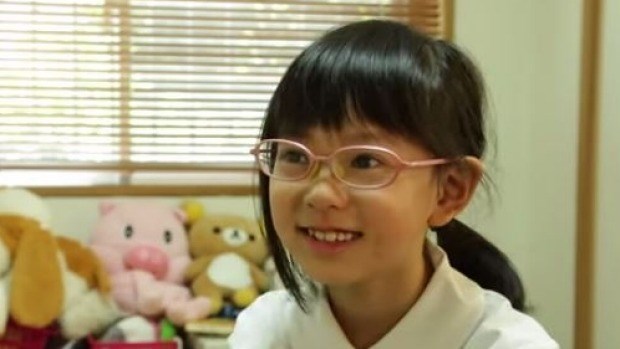Why Japanese children are so independent

"If she gets lost or catches the wrong train, she has to figure it out on her own."
By Livia Gamble
March 22 2017
While some parents are being shamed for letting their kids walk to school, in Japan, it’s a different story altogether.
A mini-documentary created by SBS2 and published on YouTube highlights exactly how independent Japanese children are.
Titled, Japan's Independent Kids, the documentary contrasts the lives of two families – one in Japan and one in Australia.
RELATED: How the Vietnamese toilet train their babies by 9 months
First, we are introduced to Noe Ando, a seven-year-old Japanese girl who commutes to school by train every day – alone, even switching train lines.
As well as the commute, Noe showers, washes her hair and gets ready for school without help from her parents.
"If she gets lost or catches the wrong train, she has to figure it out on her own," says Ando's mum, Satoko Ando.
"She won't be able to get home if she doesn't."
Ando’s story isn’t unique either. Reporter Andy Park says in the documentary that all Japanese families enoucrage their children to travel to school on their own from a young age.
This is completely different in Australia.
Much to 10-year-old Emily’s disappointment, she is driven to school every day by her dad. However, she says she’s looking forward to starting high school so she can travel to and from school on her own – plus have her own house key.
That said, Harold Scruby from the Pedestrian Council Australia said the evidence is clear that in Australia, “children are not safe crossing the road on their own.”
How Japan's society works
Parents place a great deal of trust in their community.
According to City Lab, Dwayne Dixon, a cultural anthropologist, said, "[Japanese] kids learn early on that, ideally, any member of the community can be called on to serve or help others."
"Plenty of kids across the world are self-sufficient," said Dixon. "But the thing that I suspect Westerners are intrigued by [in Japan] is the sense of trust and cooperation that occurs, often unspoken or unsolicited."
Additionally, as journalist Jake Adelstein, puts it, parents taking responsibility for their child’s commute would be bad for the economy. "They would have to reorganise the entire workforce and the way companies work."






